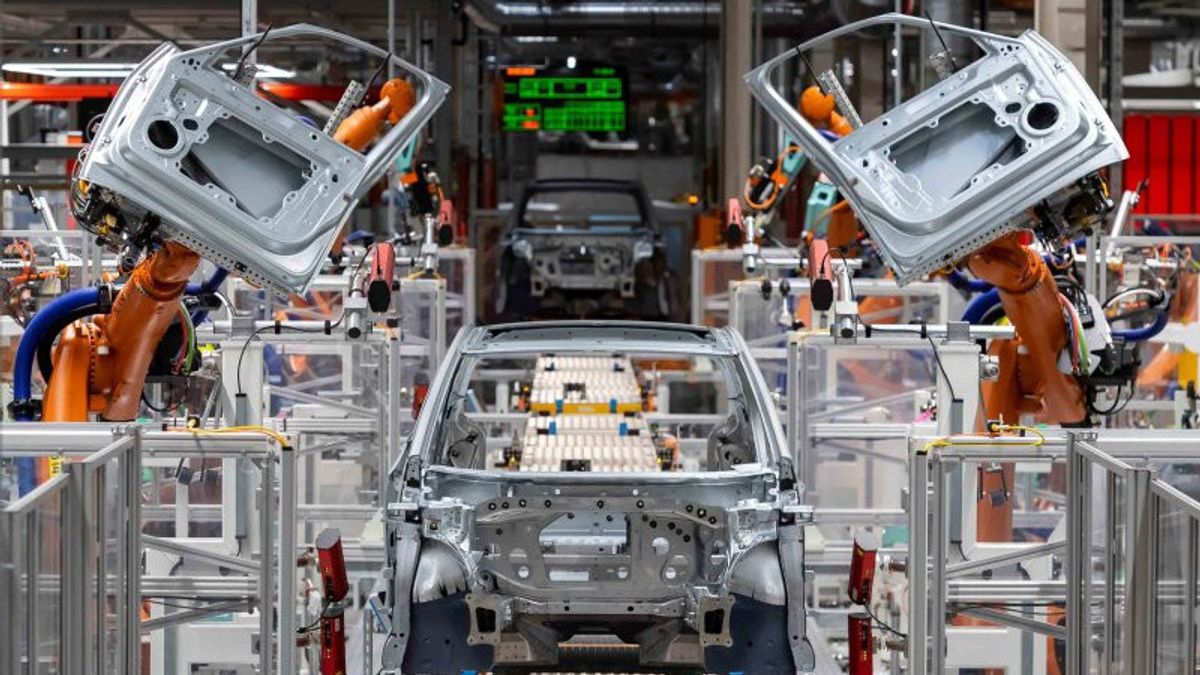JAKARTA - Economist from Padjadjaran University (Unpad) Arief Anshory Yusuf said that the development of electric vehicles (EVs) in Indonesia has a positive impact on the economy and the environment.
In his study, Arief found that the production of electric vehicles positively encourages output, added value growth, and job creation.
"Based on the results of calculations, additional output, added value, and labor due to the final demand for the electric vehicle sector, each amounted to 1.87 percent, 1.5 percent, and 0.5 percent," he said in an article entitled Economic and Environmental Impact of Electric Vehicles Production in Indonesia published this week.
According to Arief, Indonesia's current economic output and added value are around 2.25 times higher than 2010. He said efforts to stimulate EV production would still contribute to future economic growth.
"The government's ambition to use its large nickel reserves to stimulate the upstream industry is growing rapidly, such as the production of batteries and electric vehicles, to be placed in Indonesia is very open," he said.
But on the downside, the study found that the production of additional batteries and EVs led to additional external costs of emission, although in a negligible amount.
In detail, Arief concluded five findings in his empirical study. First, several economic sectors will experience output growth in line with the production of electric vehicles in Indonesia.
It was revealed that the manufacturing sectors of motorized vehicles, trailers, and semi trailers as well as aluminum ore mining and concentrates are the two sectors with the highest growth if there are electric vehicle production activities in Indonesia.
"Secondly, significant additional output in the Indonesian economy also comes from additional output in the conventional vehicle sector with a contribution of 9 percent. Additional output from the three sectors on additional output in the economy is around 86 percent," he said.
Third, for example, there is the production of electric vehicles in the Indonesian economy, so a significant additional value will also come from the electric vehicle sector, battery production for electric vehicles, and the conventional vehicle sector. About 67 percent of the additional added value in the economy comes from the three sectors.
Fourth, the production of electric vehicles in Indonesia will produce an additional 0.5 percent employment. Meanwhile, 14 percent of additional work in the economy comes from the electric vehicle and electric vehicle battery sector.
And the fifth is the existence of an electric vehicle industry in Indonesia only causing a relatively small increase in emissions. He claims the carbon increase is only 0.6 percent.
Only 4 percent of the additional emissions originally came from the electric vehicle sector and the electric vehicle battery sector. In addition, based on the polluting type, the main sources of additional emissions are SOx, CO2, and NO," said Arief.
As is known, two automotive manufacturers that are aggressively working on the electric vehicle market in Indonesia are Tesla from the United States and Wuling from China. Meanwhile, the world's automotive giants, which focus on conventional segments, such as Toyota and Honda, are still considered less aggressive in marketing stun vehicle products.
The English, Chinese, Japanese, Arabic, and French versions are automatically generated by the AI. So there may still be inaccuracies in translating, please always see Indonesian as our main language. (system supported by DigitalSiber.id)













